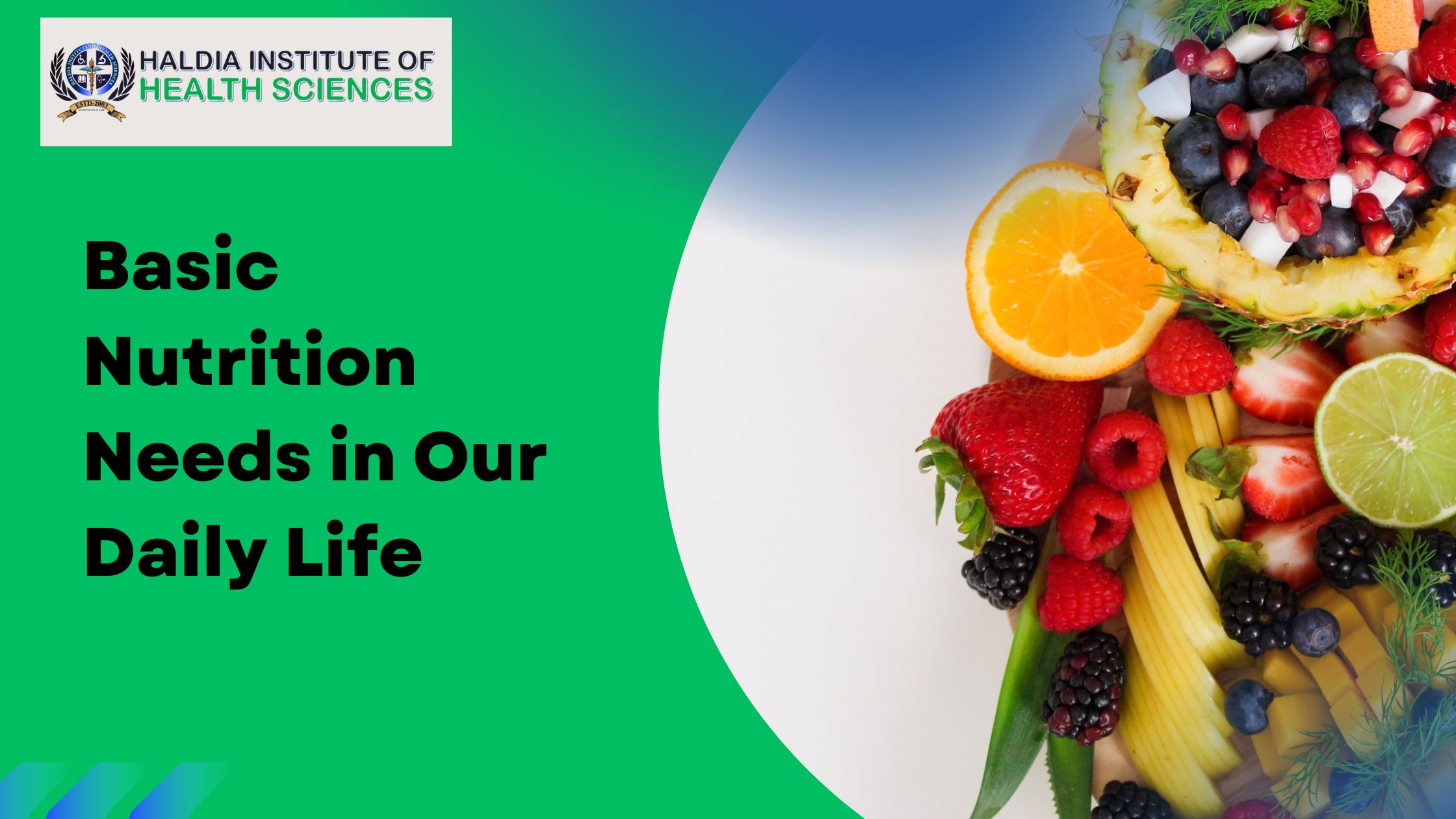Latest Notifications

Blog

Basic Nutrition Needs in Our Daily Life
Basic nutrition needs in our daily lives are essential for maintaining good health and well-being. Proper nutrition provides the body with the necessary nutrients it needs to function effectively and can help prevent various health issues. Here are the key components of basic nutrition needs:
Macronutrients:
- Carbohydrates: These are the body's primary source of energy. They are found in foods like grains, fruits, vegetables, and legumes.
- Proteins: Proteins are essential for building and repairing tissues, producing enzymes and hormones, and supporting immune function. Good sources include meat, fish, dairy products, and plant-based sources like beans and tofu.
- Fats: Healthy fats are necessary for energy, absorbing fat-soluble vitamins (A, D, E, and K), and maintaining cell structure. Sources include avocados, nuts, seeds, and fatty fish like salmon.
Micronutrients:
- Vitamins: These are essential for various bodily functions. Common vitamins include vitamin A, vitamin C, vitamin D, vitamin E, and the B vitamins (e.g., B1, B2, B3, B6, B12). They are found in a variety of foods, including fruits, vegetables, dairy products, and meat.
- Minerals: Minerals like calcium, potassium, magnesium, iron, and zinc are vital for maintaining bone health, muscle function, and other physiological processes. Dairy products, leafy greens, and lean meats are good sources.
Water:
- Water is crucial for overall health. It helps regulate body temperature, transport nutrients, remove waste products, and lubricate joints. Drinking enough water daily is essential for staying hydrated.
Fiber:
- Dietary fiber aids in digestion and helps maintain bowel regularity. It is found in foods like whole grains, fruits, vegetables, and legumes.
Antioxidants:
- Antioxidants, such as vitamins C and E, as well as various phytochemicals found in fruits and vegetables, help protect cells from damage caused by free radicals.
Probiotics:
- Probiotics are beneficial bacteria that support gut health. They are found in fermented foods like yogurt, kefir, and sauerkraut.
Limiting Sugars and Processed Foods:
- Excessive consumption of added sugars and highly processed foods can contribute to health problems like obesity and type 2 diabetes. It's important to limit these in your diet.
Balanced Diet:
- A balanced diet includes a variety of foods from all food groups in appropriate proportions. This ensures that you receive a wide range of nutrients.
Portion Control:
- Pay attention to portion sizes to avoid overeating, which can lead to weight gain and other health issues.
Individual Needs:
- It's essential to consider individual factors such as age, gender, activity level, and any specific dietary restrictions or health conditions when determining your nutritional needs.
Remember that everyone's nutritional needs are different, and it's a good idea to consult with a healthcare professional or a registered dietitian to create a personalized nutrition plan that meets your specific requirements. Additionally, making healthy food choices and maintaining a balanced diet is a lifelong commitment to overall well-being.

